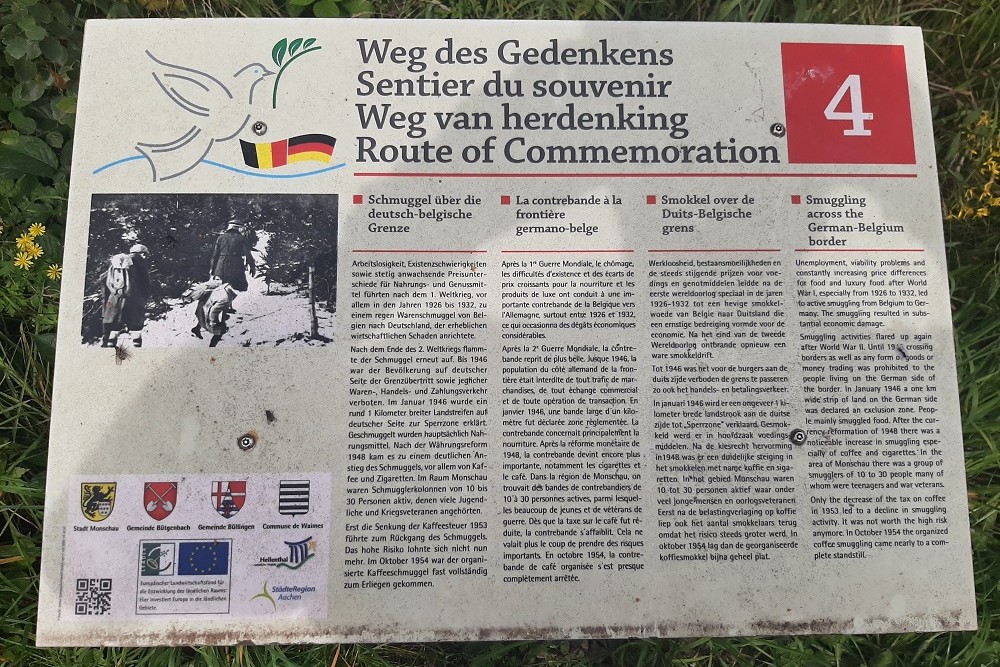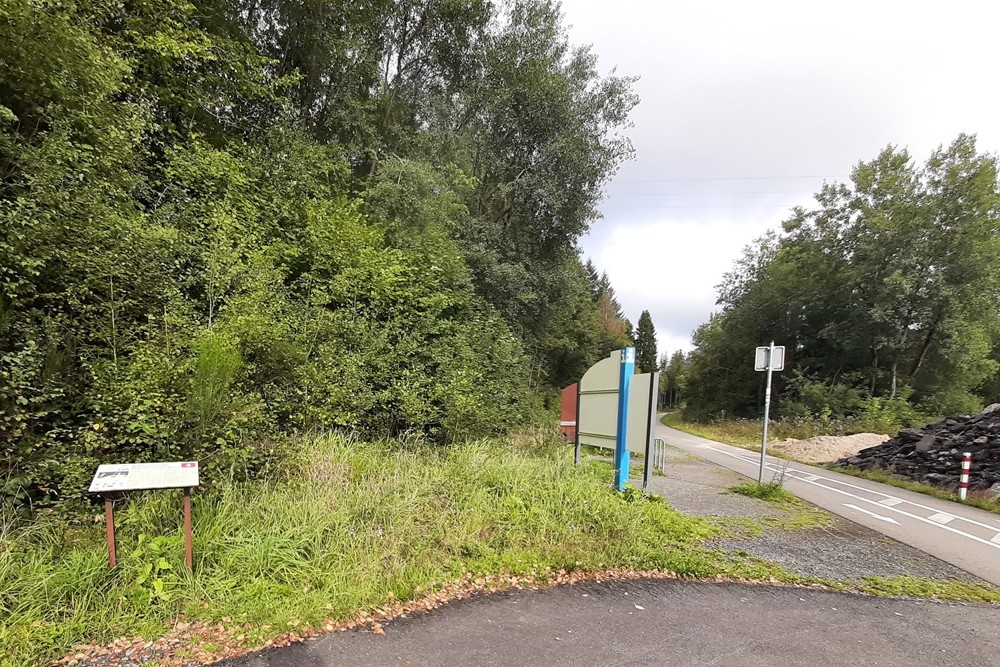Route of Commemoration No. 4: Smuggling across the German-Belgium Border
Unemployment, viability problems and constantly increasing price differences for food and luxury food after World War I, especially from 1926 to 1932, led to active smuggling from Belgium to Germany. The smuggling resulted in substantial economic damage.
Smuggling activities flared up again after World War II. Until 1946 crossing borders as well as any form of goods or money trading was prohibited tot he people living on the German side of the border. In January 1946 a one km wide strip of land on the German side was declared an exclusion zone. People mainly smuggled food. After the currency reformation of 1948 there was a noticeable increase in smuggling especially of coffee and cigarettes. In the area of Monschau there was a group of smugglers of 10 to 30 people many of whom were teenagers and war veterans.
Only the decrease of the taks on coffee in 1953 led to a decline in smuggling activity. It was not worth the high risk anymore. In October 1954 the organized coffee smuggling came nearly to a complete standstill.
Do you have more information about this location? Inform us!
Source
- Text: TracesOfWar
- Photos: Hans Tasma
Nearby
Point of interest
- Route of Commemoration No. 3: The Vennbahn during World War I and II - Weismes
- Route of Commemoration No.2: Surrender of the Vennbahn to Belgium - Monschau
- Route of Commemoration No.1: State Tunnel Burgau Air-Raid Shelter - Monschau
Monument
- Memorial Killed and Missing Soldiers Kalterherberg - Kalterherberg-Monschau
- Memorial WWI Kalterherberg - Kalterherberg-Monschau
- Memorial WWII Kalterherberg - Kalterherberg-Monschau
Cemetery
- German War Graves Monschau - Monschau
- German War Graves Höfen - Monschau-Höfen
- German War Graves Imgenbroich - Imgenbroich






